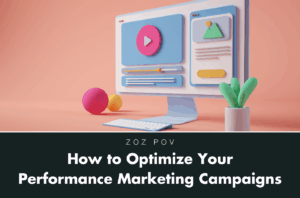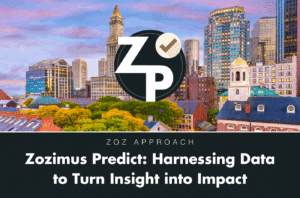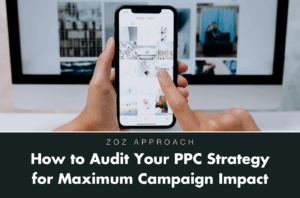The search game is changing. Fast. AI-powered search engines are rewriting the rules, shifting away from traditional keyword-based searches to intuitive, intent-driven experiences. With Gartner predicting a 25% drop in traditional search volume by 2026, brands that don’t adapt risk fading into the digital background.
At Zozimus, we believe in dreaming bigger. And that means embracing AI search to keep your brand at the forefront of discoverability. Let’s dive into the evolution of search, the key players shaping the landscape, and the strategies to ensure your brand isn’t just found—but featured.
AI Search Is Here—Are You Ready?
The days of simple keyword rankings are waning. AI-driven search engines don’t just retrieve results—they synthesize information, delivering direct answers based on context, user behavior, and real-time relevance. The takeaway? The old SEO playbook isn’t enough anymore.
AI search is shifting toward a deeper understanding of user intent. Instead of matching exact keywords, AI models analyze the meaning behind search queries. This shift allows search engines to generate responses that are conversational, structured, and multi-modal, incorporating text, images, video, and even audio to craft a more comprehensive answer. If your brand isn’t optimized for AI discovery, it’s time to rethink your strategy.
Meet the AI Search Power Players
Not all AI search models are created equal. Each one has a unique way of interpreting and surfacing content. Here’s who you need to know:
ChatGPT from OpenAI provides conversational AI that favors well-structured, digestible content. Perplexity is unique in its approach, prioritizing cited sources, meaning brands need strong authority and credible mentions to gain visibility. Google’s Gemini powers AI Overviews, making structured, high-quality, and factual content more important than ever. Finally, Claude from Anthropic emphasizes safe and ethical AI responses, favoring educational and responsible content.
Winning at AI search means tailoring content strategies to these models—because visibility isn’t one-size-fits-all.
Should AI Bots Crawl Your Content?
AI crawlers index your content to train language models. The trade-off? Increased visibility vs. content control.
If you want to maximize brand exposure in AI-generated responses, allowing AI bots to crawl your site is a good strategy. If your content is publicly available and optimized, AI discovery can be an asset. Leveraging AI-driven citations and traffic can further enhance your online presence. However, if your content is proprietary, gated, or paywalled, you may want to block AI crawlers to maintain control over distribution. Businesses with concerns about unauthorized usage or privacy should carefully consider their AI access policies.
If AI is indexing your content, make sure it’s structured, authoritative, and optimized to get the best results.
5 Strategies to Dominate AI Search
The first step to optimizing for AI search is conducting an audit of your brand’s visibility in AI-generated search results. It is essential to understand how often and in what context your brand is being referenced. Using tools like HubSpot’s AI Search Grader can help businesses track mentions and assess how AI models perceive their brand. By consistently monitoring AI-generated responses, brands can identify areas that need improvement and make necessary adjustments to enhance visibility.
The second key strategy is optimizing for user intent rather than just keywords. AI search engines prioritize content that answers real questions in a clear, structured, and concise manner. To align with this, businesses should focus on creating people-first content that directly responds to user inquiries. Writing in natural, conversational language ensures that content resonates with AI-driven searches. Structuring content with well-organized headers, bullet points, and FAQs further improves the ability of AI models to parse and retrieve information efficiently.
Competitive analysis plays a critical role in AI search optimization. Understanding which competitors are frequently referenced in AI-generated search results can provide valuable insights. Brands should monitor industry-related citations, analyze Google’s AI Overviews for formatting and structuring patterns, and track how competitors are optimizing their content. By studying their approach, businesses can identify opportunities to differentiate their own content and improve their search presence.
Establishing content authority is another vital component of AI search strategy. AI search engines favor trustworthy, well-cited content from credible sources. To strengthen credibility, brands should include expert insights, verified data, and citations in their content. Ensuring that content remains updated with fresh information increases the likelihood of AI recognizing and surfacing it. Additionally, structuring content with clear formatting and logical flow not only improves readability for users but also enhances AI interpretation.
Finally, brands need to build a strong, multi-channel presence. AI search does not solely rely on website content; it also scans discussions, reviews, and media mentions. Businesses should actively participate in relevant online discussions, including platforms such as Reddit, Quora, and industry-specific forums. Securing media coverage in AI-training publications can further improve brand visibility. Since AI models favor multimodal content, leveraging video, imagery, and interactive content can increase the likelihood of being featured in AI-generated search results.
The AI Search Checklist—What to Do Today
Assess your AI search presence by running an AI search audit to evaluate brand visibility. Optimize your website content to ensure AI-friendly structuring and relevance. Track competitor citations and analyze their strategies to identify opportunities. Engage in AI-friendly online discussions by participating in forums and communities where AI sources data. Strengthen your PR efforts to secure mentions in authoritative publications. Finally, continuously monitor AI search trends and adjust your strategy accordingly.
The Future of AI Search Starts Now
The shift to AI-driven search is an opportunity, not a roadblock. By balancing traditional SEO with Generative Engine Optimization (GEO), brands can position themselves as go-to sources in the AI era.
At Zozimus, we don’t just chase rankings—we build strategies that make your brand the answer AI is looking for. Ready to get ahead of the AI search curve? Let’s talk.

David Wilson
EVP, Digital Marketing & Performance
David has more than 20 years working in digital marketing, covering in-house for a variety of companies, agencies and running his own digital marketing company. He has worked on Fortune 500 clients in the Pharmaceutical, CPG, Financial Services, and Healthcare verticals.
David brings a passion for proven results to the Zozimus digital marketing team. When asked what he likes about his job, David says that “every day his team has metrics that they are trying to hit for clients. At midnight the scoreboard gets set back to zero and we either hit our goals or we didn’t.”
BOSTON, MARS



